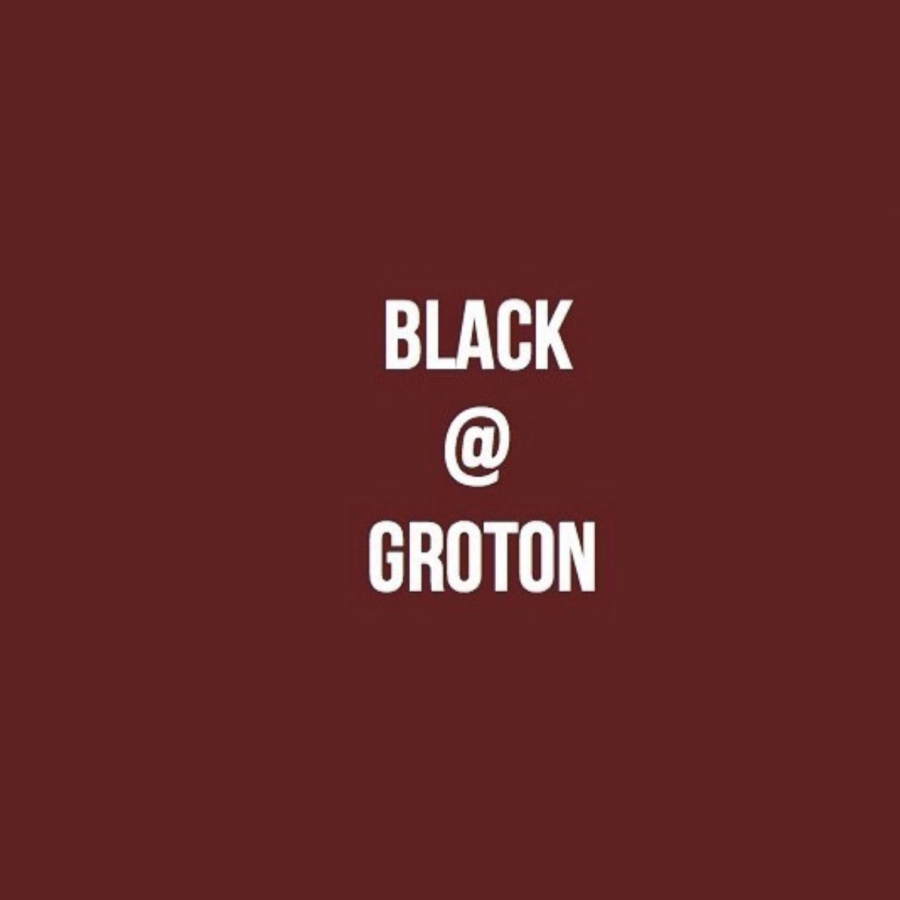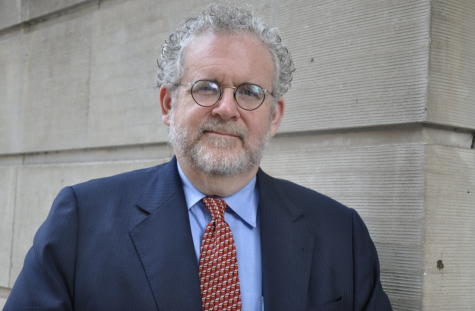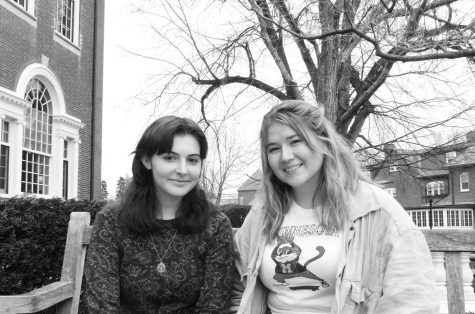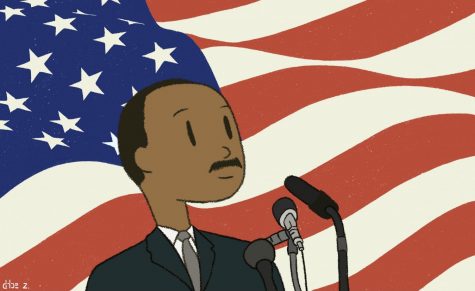An Interview with @BlackAtGroton
On June 18th, 2020, the Instagram account Black At Groton made its first post, following the lead of other accounts such as Black At Andover and Black At Tabor. The account created a platform in which BIPOC Groton students and alumni could share their experiences of racism, discrimination, or micro-aggressions from their time on the Circle. Since then, the account has generated much traction, including an apology in the comments of a post from Groton’s former headmaster Richard B. Commons. The account has aimed to create active change through empowering Black voices and encouraging non-Black students, alumni, and faculty of Groton to listen to these voices. The Circle Voice has conducted an interview with the administrators of Black At Groton, who prefer to remain anonymous for reasons which will be explained below. Here are their responses:
What were the motivations for starting Black At Groton?
Black At Groton was started by a group of current students and alumni in order to create awareness among the Groton community of racism towards students during their time on the Circle and to give Black students, and later other BIPOC students, a safe space to share their experiences and trauma. We wanted to force the Groton community, especially its non-Black members, to reflect on how racism impacts Black students at Groton and acknowledge the progress that has to be made before Black students have a truly equitable experience at the school. In a national and international moment of reckoning with anti-Blackness, police brutality, and institutional racism, we did not want to miss the opportunity to highlight that doing the work of anti-racism starts at home in our own circles, our own families, and our own school.
What role do you think pages such as the Black At X accounts have in the greater Black Lives Matter movement and what do you envision their future in it?
The ‘Black At’ accounts that have emerged in the last few months serve to bring racism and anti-Blackness at educational institutions, especially predominantly white prep or private schools, colleges, and universities, to light. Their role in the greater Black Lives Matter movement is to highlight how racism permeates all facets and areas of life in the United States. Elite educational institutions, while perhaps not generally being the location of the high profile cases of state-sanctioned police violence, are in no way immune. The fight for Black liberation and justice is one that has many different elements to it because we must tackle racism wherever it is found to truly eradicate it. For the future, the role of these accounts could be to hold institutions accountable, to educate students and other community members, to provide guidance on how to continue the journey of anti-racism, to continue to provide a safe space for Black students to share their experiences, or perhaps even to highlight Black excellence among students and alumni. At Black at Groton in particular, we want to serve whatever need there is in bringing to life in the Groton community the idea that not only do Black Lives Matter, but so do Black voices, Black joy, Black beauty, Black intelligence, and so on and so forth. In the next few weeks we want to try and understand what role the Groton community wants us to play going forward, so please look out for posts from the account asking for feedback!
Why have you decided to keep the names of storytellers anonymous?
We have decided to keep the names of storytellers anonymous for two main reasons. Firstly, we want to protect contributors from backlash or harassment that Black people and other BIPOC often face in America and elsewhere for simply telling the truth about racism. Secondly, we wanted the emphasis not to be on gossip or speculation about the people sharing these stories or who the perpetrators of these incidents are, but rather on the acknowledgment that racism is a reality on Groton’s campus, and that it is the responsibility of all Groton community members to actively pursue anti-racism and true inclusion.
Why do you prefer to remain anonymous?
The reason we want to keep our identities anonymous is basically the same reason we want to keep the identities of contributors anonymous. We’re all too aware of the intensity of Groton’s rumor mill, of the backlash pro-Black and anti-racist activists often receive, and of the potential of talk, or praise, or criticism of individuals distracting from the point of the page. Black at Groton isn’t just about us, it’s about the entire Groton School community. The focus should be on thinking about how everyone can commit themselves to anti-racist action so incidents like the ones we share become few and far between, not on the people who run the account.
Do you think the Groton administration has responded well to these stories?
Unfortunately, we have been quite disappointed at times by the response of Groton’s administration both to this account and to the national social justice movement that surged following the tragic murder of George Floyd. We feel that the administration has often been slow to speak on this issue, and lacking in its firm commitment to anti-racist action. We know that many students, alumni, faculty, and parents share this viewpoint. Self-praise, vague language, and performative and non-committal statements are not helpful; none of the students that have been called names, or disrespected, or dehumanized on campus are reassured by reminders that Groton’s headmaster is Black or that Rev. Martin Luther King Jr. spoke at the school in 1963. Black students need not only to be given the opportunity to attend Groton but adequately supported during their time at the school and surrounded by an environment that is committed to active anti-racism. We are appreciative of the school’s existing efforts to promote Diversity and Inclusion. GRAIN is a fantastic initiative that has been extremely successful in broadening access to Groton. We understand the significance of having Black leadership at the school. However, we believe that Groton’s history of commitment to D&I do not exempt the school from pushing for change. Indeed the opposite is true. To do justice to the progress that has been made, the school must be held accountable to actively continue the journey of anti-racism.
Based on the entries of people who shared their stories to Black at Groton, what can the administration and students do to improve the climate towards Black students?
From the administration, the six action points in the Letter to Groton signed by hundreds of Grotonians are a good place to start- we would like to see tangible action taken to achieve those goals. We would also love to see the school increase the hiring and retention of Black faculty, incorporate anti-racism education as a mandatory part of the curriculum, and provide microaggression training for students and faculty.
For students, there needs to be an individual and collective reflection about how campus culture treats Black students and why. Every student at Groton should try to talk and be friendly to a diverse range of peers. Every student at Groton should think about how they view and treat Black women in particular; many of the entries we have received have been about the prevalence of misogynoir at Groton. Every student can take themselves to Cultural Alliance, actually engage during D&I workshops, and listen to understand when a speaker comes into school to talk about racism or a peer speaks up about an issue. Every student can make an effort to read a book, or listen to a podcast, or watch a documentary about anti-racism and educate themselves. Every student can make sure that they speak up if they hear someone make a racially derogatory statement or ‘joke’. This is by no means an exhaustive list, but really the first step is for students to care about actively incorporating anti-racism and inclusion into the way they live on a continual basis.











